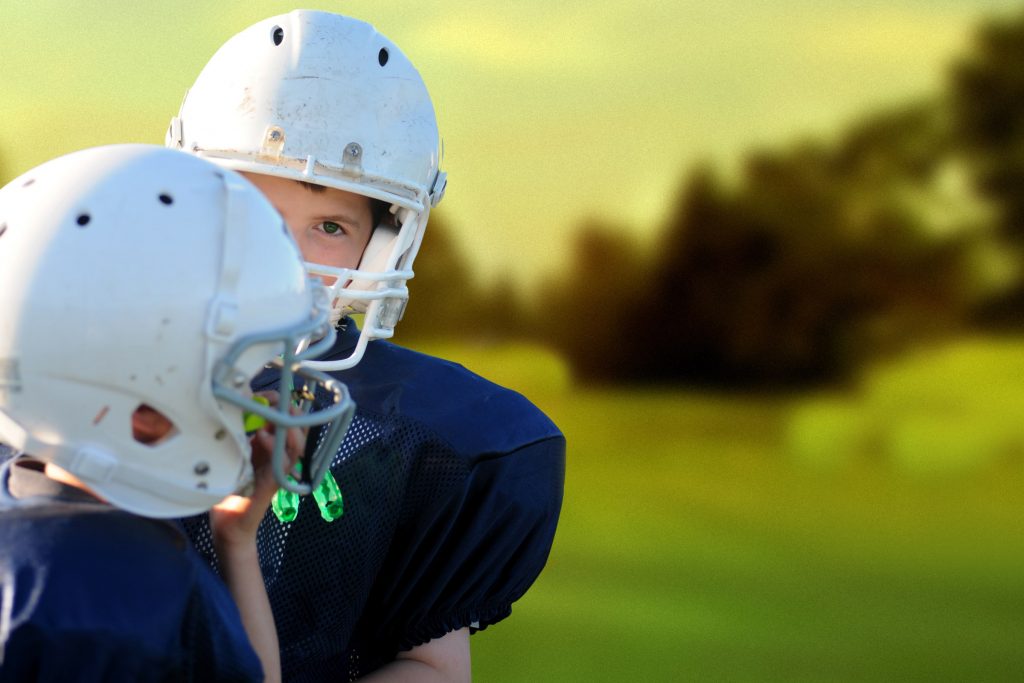Many parents believe that the early specialization in one sport is the only option for later elite performance. This should be reconsidered. Participating in as many sports as possible at a young age will enhance physical health and psychological development in addition to allowing for elite performance.
Positive and Negative Outcomes of Youth Sport Involvement1
- What sports did you play when you were younger?
- Do you have positive memories from involvement in sports?
Despite the large body of research showing the positive outcomes of playing sports as a child, there is a new body research associated with negative youth sport experiences.

Deliberate Play, Deliberate Practice, Early Specialization2,3
Most people involved in regular physical activity in adulthood were involved in a variety of organized sports or deliberate play when they were younger.
Deliberate play:
“Sport activities designed to maximize enjoyment, regulated by flexible rules.”
Côté et al., 2007
An example of deliberate play is playing soccer in your backyard with smaller goals and a smaller playing area with flexible rules.
Other research suggests that the most learning occurs during more structured practice, such as deliberate practice.
Deliberate practice:
“Activities that require effort, generate no immediate rewards, and are motivated by the goal of improving performance (rather than enjoyment).”
Ericsson et al., 1993
An example of deliberate practice is a structured soccer practice with a coach telling athletes how to improve performance according to real soccer rules.
Early specialization:
Characterized as participating in one single sport during the whole year, with high amounts of deliberate practice and low amounts of deliberate play.
Think about your sport involvement:
- Were you involved in deliberate play or practice most of the time?
- Did you play a variety of sports or just one year-long?
Why is Early Specialization Dangerous for Your Long-Term Health?4,5,6,7,8
Elite performance can be reached through early specialization and over-emphasis on deliberate practice, however, there are many costs associated with it on the long term. Despite learning sport-specific skills and being confident in one sport, early specialization may lead to health problems or withdrawal from physical activity all together.
Specializing in one sport at a young age (6 years old) can have severe negatives consequences on one’s long term health. In fact, research has shown that it can lead to drop-out, injury, burnout, and failure to develop skills that can be used for other physical activities. In addition, specialization has also been shown to decrease enjoyment and increase discouragement due to such attachment to one sport. Further, personal development can also be affected by early specialization as there are many missed social opportunities.
As a result, when the specialized athlete needs to stop that sport (due to injury, burnout, no career opportunities, or choice), he/she might be less willing to take part in physical activity in the future because athletes:
- Never found inherent pleasure in physical activity participation (previous participation was always performance/externally motivated)
- Might associate all physical activities with negative experience associated with specialized sport (injured, burned out, parental/coach pressure and expectations)
- Only has motor skills in one sport which makes it at lot harder to find pleasure in other types of movement.
How to Reach Elite Performance without Early Specialization?9,11
Engaging in a variety of sports from the ages of 6 until 12 is an important step to reaching elite performance without having health problems related to early specialization and optimize long-term health benefits and child development. Elite performance can still be reached if a child starts specializing between the ages of 13 and 15, and really focuses on that one sport starting at the age of 16.
Deliberate play and playing lots of different sports is important in the first five years of sport participation.
Research proof: One study looking at elite ice hockey players found that players spent much more time in deliberate play in various sports activities in comparison to deliberate practice, in hockey specifically, before the age of 20. Their involvement in various sports contributed to the acquisition of their exception skills leading to elite level hockey. Early specialization is not a necessary step to elite level performance.
Developmental Model of Sport Participation10
This model proposes 3 different trajectories associated with youth sport participation and the associated outcomes.
Trajectory 1: Recreation Participation Through Sampling
In this trajectory, the child (6-12 years old) tries a variety of different sports with the focus being on deliberate play. After this, the child (13 + years old) continues focusing on a mix of deliberate play and practice with the focus being on enjoyment and health. The child continues to have exposure to meaningful challenges and grows up in a health-promoting environment.
Parents’ Role
Children involved in this trajectory often have parents that introduce them to a variety of sports, enrol them into diverse activities and provide them with necessary equipment.
Probable Outcomes
Children growing up within this trajectory are most likely to continue participating in recreational physical activities, to have enhanced physical health and enhanced psychosocial development.
Trajectory 2: Elite Performance Through Sampling
Some children may be more interested in elite performance and this trajectory offers specialization starting at the age of 13, without negative consequences of early specialization. During the specializing years (13-15 years old), child continues engaging in a mix of deliberate play and practice activities, but with fewer sports. During the investment years (16 + years old), the child commits to one sport and engages mostly in deliberate practice.
Parents’ Role
Children involved in this trajectory often have parents that offer a leadership role in the sampling years (6-12 years old) and offer a supporting and following role within the specialization and investment years. Parents of children in this trajectory offer emotional and financial support throughout.
Probable Outcomes
Children involved within this trajectory are most likely to be involved in elite performance, to have enhanced physical health, and psychosocial development.
Trajectory 3: Elite Performance Through Early Specialization
Children going through this trajectory miss out on the benefits of trying a variety of sports from the ages of 6 to 12 years old. As mentioned above, this trajectory is characterized by low amounts of deliberate play and high amounts of deliberate practice with a focus on one sport.
Parents’ Role
Parents of children in this trajectory encourage early specialization and are performance oriented.
Probable Outcomes
Children are most likely to perform their sport at an elite level, however, they are also likely to have reduced physical health and enjoyment over the long term. Children specializing early on will be less likely to be active during adulthood due to physical injuries (overuse), or psychological harm (burnout).
Exceptions: Figure skating & Gymnastics
Figure skating and gymnastics are the exception. In these two sports, peak performance is reached before puberty. For this reason, early specialization is often necessary to reach elite levels of performance. Positive psychosocial development is not always experienced since the athletes in these sports miss out on the sampling years, in which they try out lots of sports. In addition, many of these athletes’ experience overuse injuries.
Conclusion
Recommendations for parents, P.E. teachers, and coaches:
- Children should engage in a variety of sports and physical activities until, at least, the age of 13.
- Early specialization and investment in one sport before the age of 16 may reduce physical health and enjoyment of physical activity participation. This means that children specializing early on may be less likely to be physically active during adulthood.
- Encourage coaches to adopt an inclusive focus rather than performance-oriented selection process. Inclusive focus within team sports leads to:
- less dropout
- more prolonged participation in sport
- greater elite performance in adulthood
- Teach fundamental motor skills (FMS) in a fun way:
- Teaching FMS is one of the goals of structured practice. However, one of the main reasons’ kids continue to play sports is because they find it fun. Make sure to keep your structured practice fun to keep the kids coming!
- Provide opportunities for children to practice their sport in low-organized deliberate play.
- Allow children to learn life skills through youth sport involvement
- Respect
- Inclusion
- Teamwork
- Commitment
- Friendship
Deliberate play is an important part of reaching elite level performance without compromising athletes’ physical and mental health over the long term.
References
2 Côté, J., Baker, J., & Abernethy, B. (2007). Practice and play in the development of sport expertise. In R. Eklund & G. Tenenbaum
(Eds.), Handbook of sport psychology (3rd ed., pp. 184 – 202).
Hoboken, NJ: Wiley.
3Ericsson, K. A., Krampe, R. T., & Tesch-Römer, C. (1993). The role of deliberate practice in the acquisition of expert performance. Psychological Review, 100, 363–406. https://doi.org/10.1037/0033-295X.100.3.363
9Soberlak, P., & Côté, J. (2003). Developmental activities of elite ice hockey
players. Journal of Applied Sport Psychology, 15, 41–49. https://doi.org/10.1080/10413200305401





